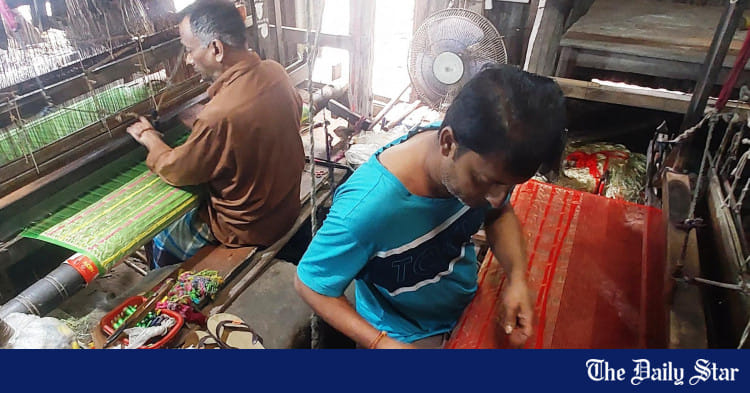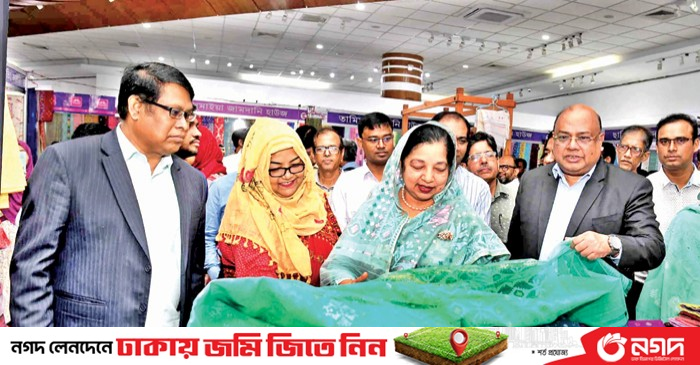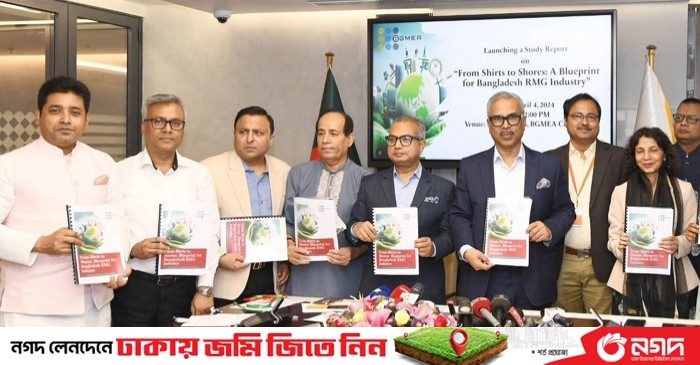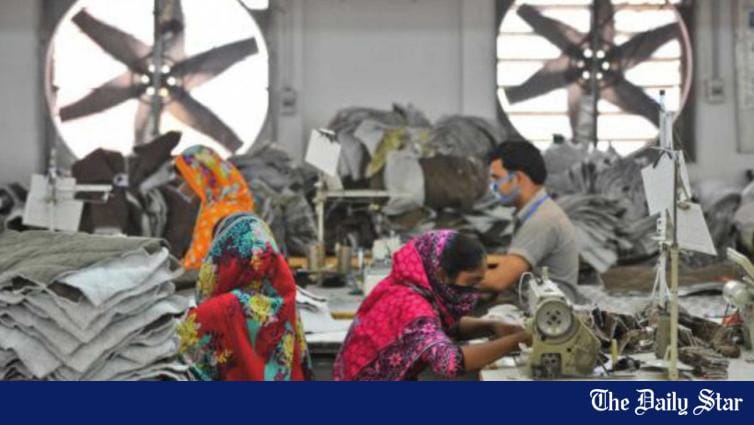Tangail saree weavers busy ahead of Eid, Pahela Baishakh
Ahead of every festival, demand for traditional dresses increases all across the country as everyone desires to join the festivities by draping themselves in beautiful clothing.
Of all kinds of traditional clothes, Tangail sarees hold a special place in the hearts of the country's people due to their long-standing tradition and history.
To a saree aficionado, any festival seems dull if they fail to get Tangail sarees for themselves or their close ones, and the tradition continues year after year.
With that in mind, weavers in Tagail have immersed themselves in weaving the traditional sarees with their hand-looms, as both the Eid-ul-Fitr and Pahela Baishakh draw near.
While there have been recent debacles regarding the GI tag of Tangail sarees, it was of little to no concern to these weavers. Like every year, they are working to come up with an array of variations in colours and designs in tune with the ongoing trends and festivities.
While Tangail sarees are produced across all upazilas of the district, Delduar upazila is known as the main hub for Tangail sarees.
Thousands of weavers in Bajitpur, Dhulutia, Suruj, Bertha, Bamankushia, Gosaijoyair, Taratia, Enayetpur, Belta, Santosh, Kagmari in Sadar upazila, Patrail, Chandi, Nalshodha, Barotia, Chinakhola, Mangalhor, Nalua, Bishnupur, and Deojan areas of Delduar upazila are engaged in weaving these traditional hand-loom sarees .
Also, there are many weavers from different areas in Kalihati Basail upazilas.
While others try to replicate the style of weavers from Tangail and even claim Tangail sarees as their own, the truth is that authentic Tangail sarees, which are unmatched in quality and variety, are traditionally woven in Tangail.
Speaking to this correspondent, weavers said they have already supplied several lakh sarees at shopping malls and shops across the country and even abroad.
After a few years of turmoil due to the pandemic, the weavers said they are expecting a turnaround this year by selling their sarees to women of all ages and professions, with their products ranging in price from Tk 400 to Tk 20,000 and higher.
Apart from traditional Tangail Sarees, the weavers also produce various other sarees -- including hand-loom cotton, Jamdani, Silk, Baluchari silk, half silk, soft silk, Dotari silk, jute silk, Khaddar, Benarasi, Katan, Tasar, Anarkali, Dhansidi, Resham, Manpura, Suti Kuchi, etc.
The sarees produced across the district are mainly sold wholesale during weekly haat (market) days in Karatia and Bajitpur of Sadar upazila and Salla of Kalihati upazila.
Wholesalers from all over the country come to these markets to buy sarees directly from local weavers. Sarees worth several crores of taka are purchased in these markets ahead of Eid, according to market sources.
Raghunath Basak, president of Pathrail Saree Traders Association, said the wholesale of sarees produced here is usually completed within 15 days of Ramadan, while retail sales continue till Eid.
The price of sarees from other places, including those from India, is cheap, but the quality is inferior compared to the traditional sarees weaved in Tangail, he added.
"There are many things that need to be done for the industry, including publicity. India wrongly took the GI rights of our Tangail saree," Raghu noted.
Kaiserul Islam, deputy commissioner of Tangail, said, "The rectification application with the Indian court regarding the GI rights for Tangail sarees is under process through a lawyer. The foreign ministry has been entrusted with this end. The process will be completed by April 1."











































